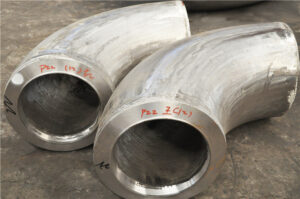
Nickel-based alloy flanges are engineered for extreme environments where standard stainless steel fails. These flanges leverage the superior properties of nickel-chromium (Ni-Cr) and nickel-copper (Ni-Cu) alloys to withstand corrosive chemicals, ultra-high temperatures, and high-pressure stress. Common applications include oil & gas sour service, chemical processing, and nuclear power plants.
Key Alloy Grades & Properties
| Alloy | Key Composition | Temperature Range | Primary Advantages |
|---|---|---|---|
| Inconel 625 | Ni (58%) + Cr (20%) + Mo (8%) | -200°C to 980°C | Oxidation resistance, seawater corrosion |
| Hastelloy C276 | Ni (57%) + Mo (15%) + Cr (16%) | -196°C to 400°C | Acid/solvent resistance (HCl, H₂SO₄) |
| Monel 400 | Ni (63%) + Cu (30%) | -150°C to 480°C | Hydrofluoric acid (HF) resistance |
| Incoloy 825 | Ni (38%) + Fe (30%) + Cr (21%) | -100°C to 540°C | Sulfuric/phosphoric acid resistance |
Why Nickel Alloys Outperform Stainless Steel?
✔ Chloride Stress Corrosion Cracking (SCC) Resistance – Critical for offshore/marine applications.
✔ Creep Strength – Maintains structural integrity under prolonged heat (>600°C).
✔ Sour Gas Resistance – Withstands H₂S/CO₂ in oil & gas pipelines (NACE MR0175 compliant).
Manufacturing Processes
Forging – Hot-forged for grain structure uniformity (ASTM B564 standard).
CNC Machining – Precision-turned bolt holes and sealing faces (Ra < 1.6 μm).
Welding Compatibility – Requires specialized techniques (TIG/GTAW with ERNiCrMo-3 filler).
Submit your project requirements now and our material specialists will respond within 24 hours with tailored solutions.